Detroit’s reparations task force is in chaos after two members RESIGN and another dies less than a year after it was set up: Leavers claim there’s been a ‘lack of progress’ and ‘no broad strategic vision’
Detroit's reparations task force has been rocked by two resignations less than a year after its creation.
Co-leader Lauren Hood said she, along with southwestern city representative Maurice Weeks, had been considering leaving for months because the group “lacked a broad strategic vision.”
“I think that group of people collectively have different ideas about what reparations fundamentally are and we haven't gotten to a place where we had a broad strategic vision,” Hood told the paper. Detroit News.
The task force was given a budget of $350,000 to develop recommendations for housing and economic programs that “address the historic discrimination against Detroit's Black community,” according to the City Council's website.
City council leader Mary Sheffield heralded the group's launch in March with a triumphant press conference, flanked by the 13 new recruits, including Hood and Weeks.
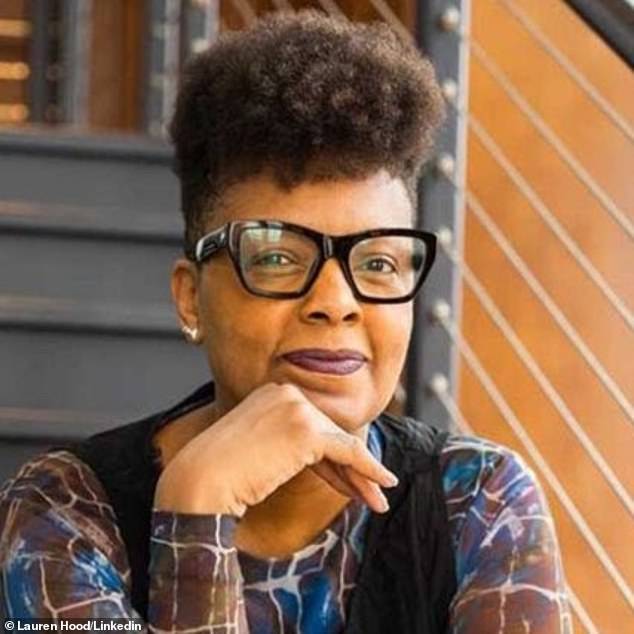
Detroit's reparations task force has been rocked by two resignations less than a year after its creation. Co-leader Lauren Hood (pictured) was among those who left, citing a 'lack of vision' as a reason for staying on for months
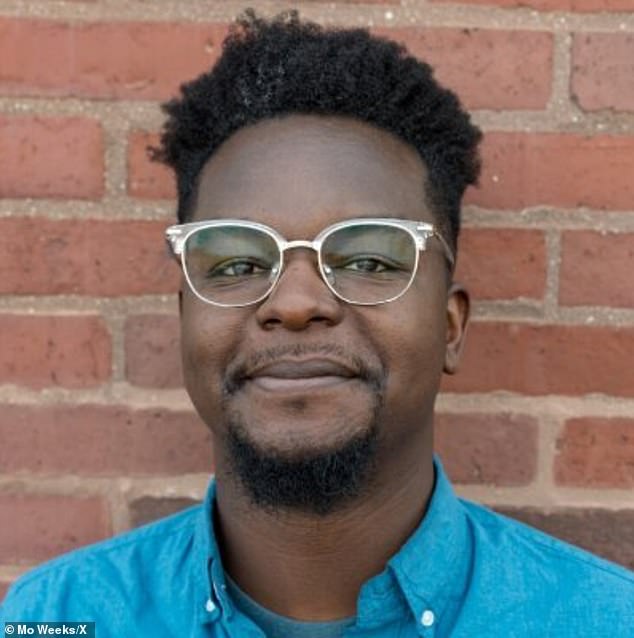
Maurice Weeks (pictured), representing the southwestern city, also stepped down from the 13-member task force. His departure, along with Hood, followed the death of former council member Rev. Dr. JoAnn Watson in July, meaning membership has dropped to 10 people
She said members would conduct research on “the harm done to Detroiters by slavery through past and present systemic racism practices” before engaging the community “to figure out what it wants regarding reparations'.
They had their first meeting in April this year, but the group already seems to have fallen into chaos.
Its leaders are Michigan Democratic Black Caucus chairman Keith Williams, who campaigned for its creation along with Hood, the chief visionary of think tank AfroUrbanism.
Hood told the Detroit News that the group was “getting things done,” but they “loudly need a strategy for how we engage the public in this work.”
Hood, who is also curator of the Charles H. Wright Museum of African American History, added that there was no plan for how the public would be involved in the work.
“We had some concerns at the last meeting we had and nothing really changed. So it's like, how long can you stay the course if you don't see anything change?' she said.
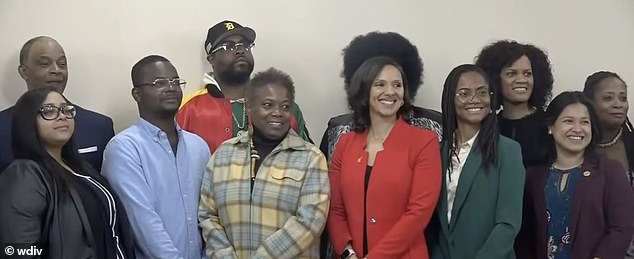
The resignations of Hood and Weeks, along with the death of former council member Rev. Dr. JoAnn Watson in July, meaning membership is now down to 10
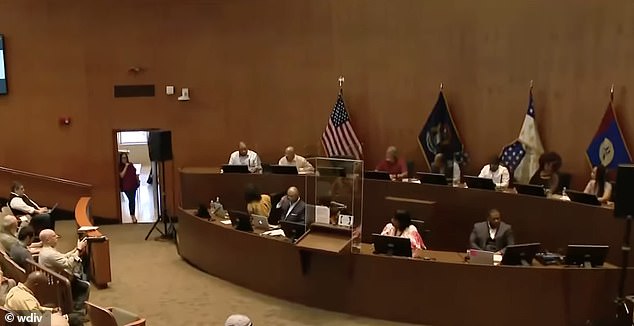
Detroit City Council members will have to recommend and vote on new appointments when sessions resume in the new year
The resignations of Hood and Weeks, along with the death of former council member Rev. Dr. JoAnn Watson in July, meaning membership has now been reduced to ten.
Hood said she hopes the dismissal will lead to action from the group.
“Maybe this is what was meant to happen,” she said. 'That we had to make room for other people to appear in their full capacity.'
Detroit City Council members will have to recommend and vote on new appointments when sessions resume in the new year.
Remaining co-chair Keith Williams told the Detroit News that the task force would not be shocked by the early blows, saying “the task at hand is bigger than two members.”
“To me, no one is bigger than the mission of recovery, because the mission should be about providing relief to the thousands of Black people who suffer from past racist practices,” Williams said.
“This is not the time to blame anyone because this is sacred work and we must finish the work that the citizens of Detroit voted to do.”
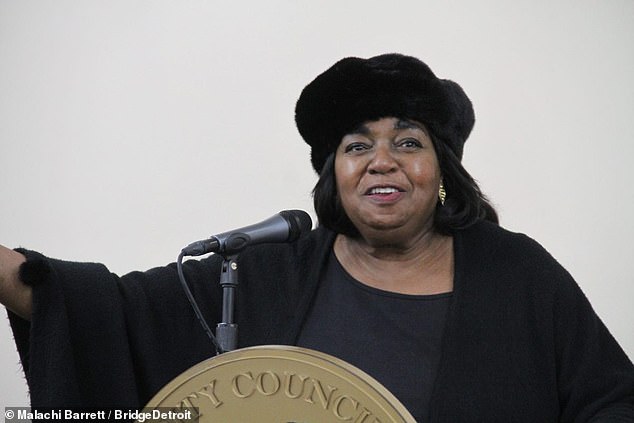
Rev. JoAnn Watson pictured at a Feb. 24, 2023 press conference announcing Detroit's new reparations task force at West Side Unity Church
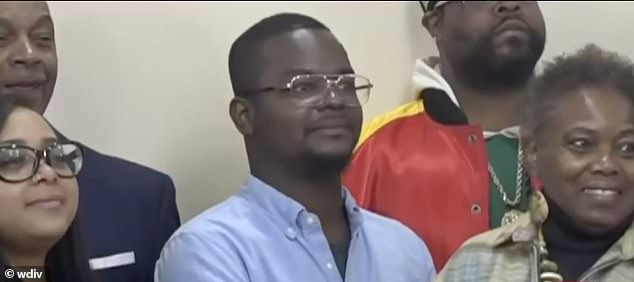
Detroit's reparations task force will be required to submit a report with its findings and recommendations to the City Council within 18 months
The group was formed after Detroit residents voted to create a task force focused on housing and economic issues. They envisioned the development of long-term recommendations, but the group has no legislative power.
Detroit's reparations task force will be required to submit a report with its findings and recommendations to the City Council within 18 months.
Williams said they are on track to complete the report. “To compile a report, you need to study the damage caused and how to fix it,” he added.
'We conduct research from the 1930s to the present. There's a lot I didn't realize.
'The mission is too big to be sidetracked. More and more young people are getting involved in helping push the agenda and I am particularly impressed with them.”
Council leader Mary Sheffield said in a statement that the taskforce was designed to be community-led, with limited council involvement.
“The City Council has done our part by appointing members in a timely manner and ensuring that funding was secured and allocated to help facilitate the work of the Task Force,” she said.
“Anytime you put together a body of 13 members, all with different opinions and personalities, to tackle such a difficult issue as reparations, it's going to take time to get everyone moving in the same direction.”
